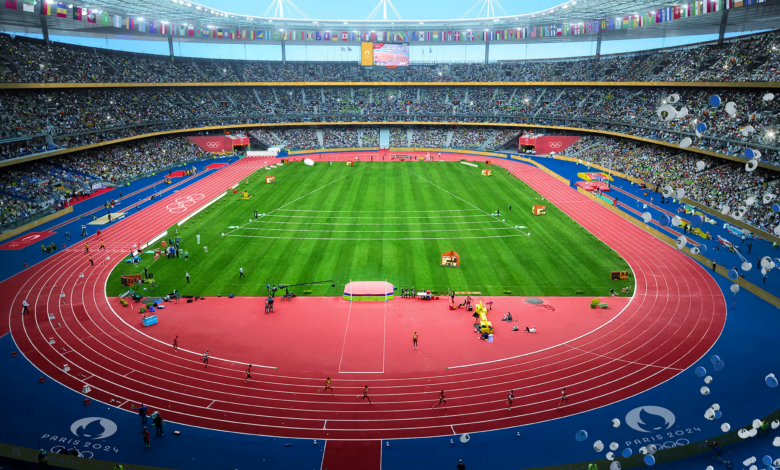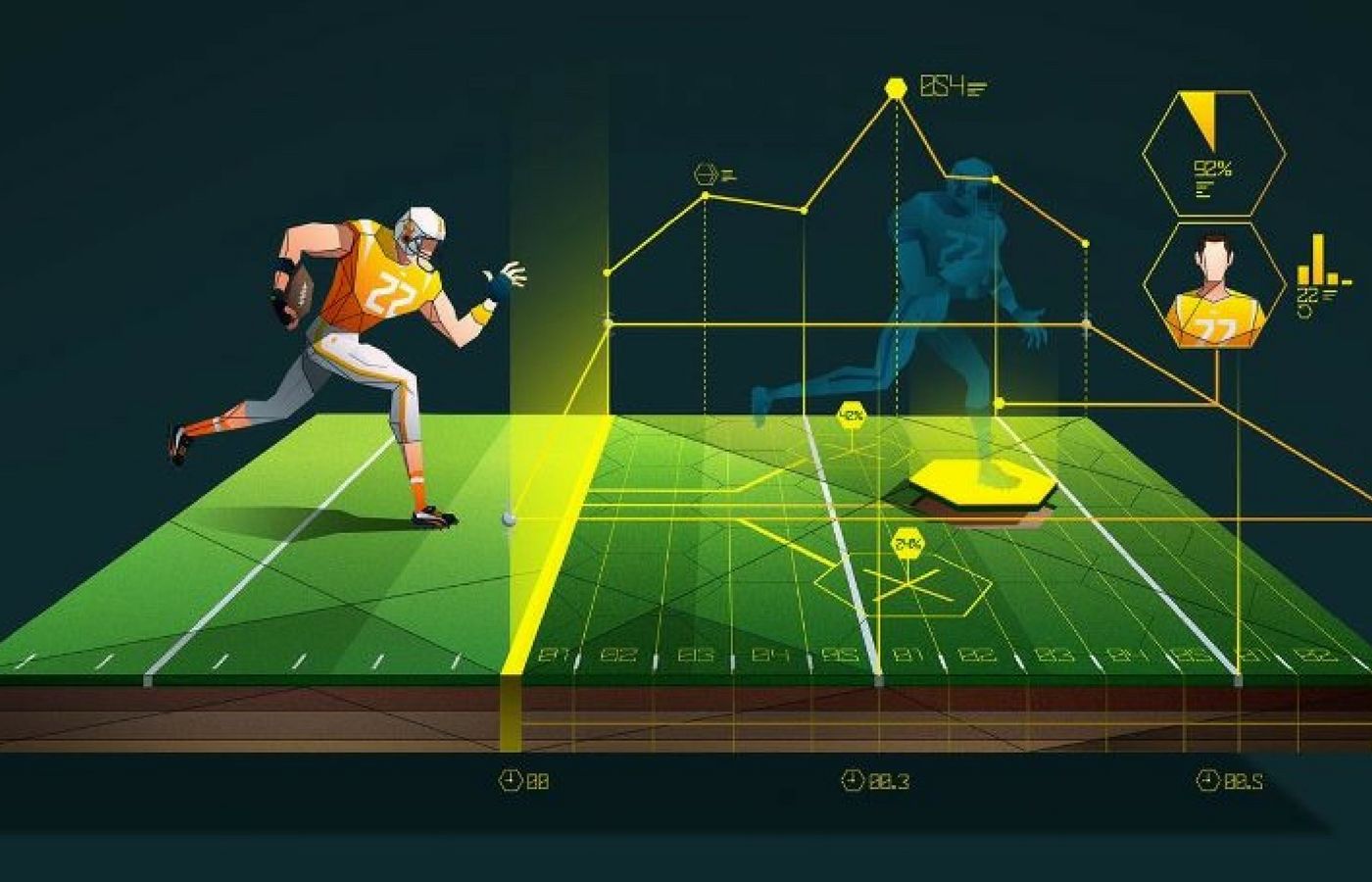The Future of Sports: How Technology Will Change the Game at Paris 2024

Paris 2024 may just be a few years away, but it promises to be a memorable one. As the host city for the Summer Olympics and Paralympic Games for 2024, Paris is already making great strides in creating a truly innovative and immersive sporting event. The introduction and integration of technology into the games is one such example, allowing viewers, fans and athletes alike to experience sports in ways previously never thought possible.
In this article, we explore how technology will revolutionize the Paris 2024 games, from Artificial Intelligence (AI) and Augmented Reality (AR) to Virtual Reality (VR) and beyond. We examine how AI will enable faster competitions, AR will open up new ways of viewing iconic events, and VR will help athletes practice in ways not previously available. We consider how these technologies can also change how fans interact with and experience sports as well as offer new avenues for global sustainability.

Technology is expected to play a significant role in shaping the future of sports, and the Paris 2024 Olympics will likely showcase several advancements that enhance the game and improve the overall experience for athletes and spectators. Here are some ways technology may change the game at Paris 2024:
- Performance Tracking and Analytics: Athletes will have access to advanced wearable devices and sensors that can track their performance metrics in real time. This data can provide valuable insights into their training, technique, and overall physical condition, helping them make data-driven decisions to optimize their performance.
- Virtual and Augmented Reality: Virtual and augmented reality technologies will likely enhance the spectator experience in Paris in 2024. Fans may be able to enjoy immersive views of events through virtual reality headsets, providing a more engaging and interactive way to watch sports. Augmented reality can overlay additional information and statistics in real-time, enhancing the understanding of the game for viewers.
- Smart Stadiums: The stadiums and venues in Paris 2024 may be equipped with smart technologies to enhance the overall experience. This can include high-speed Wi-Fi connectivity, mobile apps for real-time updates and personalized content, and smart seating systems that provide comfort and convenience for spectators.
- Video Assistant Referee (VAR): VAR technology has already been widely adopted in various sports, and its presence is likely to increase in Paris 2024. VAR allows referees to review decisions using video footage, helping to reduce errors and provide fairer outcomes in situations like goal-line technology in football or determining fouls in other sports.
- Drones and Aerial Coverage: Drones equipped with cameras may provide unique aerial perspectives of sporting events, offering dynamic and captivating footage for broadcasts. Drones can capture the action from different angles and heights, providing viewers with a more immersive experience.
- Artificial Intelligence (AI): AI can be utilized in various aspects of sports, such as athlete performance analysis, injury prevention, and predictive analytics. AI algorithms can analyze vast amounts of data to identify patterns and make predictions, assisting coaches and athletes in making informed decisions.
- Sustainability Technologies: The Paris 2024 Olympics will likely showcase sustainable technologies in various aspects, such as energy-efficient lighting systems, renewable energy generation, smart waste management, and eco-friendly transportation solutions. These technologies will contribute to the organizers’ goal of hosting the most sustainable Olympics to date.
As technology continues to evolve, it is expected to revolutionize sports and enhance the overall experience for athletes, officials, and spectators. The Paris 2024 Olympics will likely provide a glimpse into this future, showcasing innovative technologies that push the boundaries of what is possible in the world of sports.
Overview of Technological Advancements in Sports

Technological advancements have played a significant role in enhancing the performance and experience of athletes and fans alike. Wearable technology, for instance, has been a game-changer in sports, allowing athletes to monitor and analyze their training and performance data in real time. The introduction of Virtual and Augmented Reality has also revolutionized the way we view sporting events, bringing us closer to the action and offering a more immersive experience.
The Digital Broadcasting of sporting events has also opened up new avenues for fans to follow their favourite sports and athletes globally. From live streaming to interactive virtual reality experiences, the possibilities are endless. Robotics and automation have also found their way into sports, helping in tasks such as delivering equipment and monitoring facilities.
The Internet of Things (IoT) has also enabled smart sports equipment that can collect data and communicate with other devices, making training more precise and efficient. However, with these technological advancements come ethical and regulatory considerations that need to be taken into account to ensure fairness and safety in sports.
The future of sports technology looks bright, with possibilities ranging from 5G networks to enhance connectivity in sports arenas, to the use of Artificial Intelligence in the analysis of players’ movements, to the development of smart stadiums that can respond to weather conditions. The Paris 2024 games are just the beginning, and we can only hope to see even more exciting innovations in the years to come.
Sports have always been a playground for innovation, with technology playing an important role in shaping the way we interact with athletes, coaches, and audiences. In recent years, the sports industry has seen a surge in technological advancements, with new technologies emerging to optimize performance, improve safety, and enhance the viewing experience for fans.
One of the most promising technologies that will change the game at Paris 2024 is the use of data analysis, machine learning, and artificial intelligence (AI) to optimize athletes’ performance. By analyzing a massive amount of data, coaches and athletes can identify areas of improvement, track progress, and develop more effective training programs. As stated by David Epstein, author of “The Sports Gene,” “Athletes are going to be as much data scientists as they are athletes.”
Another technology that will be at the forefront of the Paris 2024 Olympics is wearables. Wearable technology, such as smart watches and biometric sensors, can provide real-time data on athletes’ heart rates, oxygen levels, and other important physiological markers. This data can assist coaches and medical staff in making informed decisions about an athlete’s health and performance during training and competition.
In addition to improving athletes’ performance, technology is also playing a crucial role in making sports safer. For example, in contact sports such as American football and rugby, the increased use of sensors and camera technology is helping coaches and medical staff diagnose and treat head injuries more effectively. The same technology can also help athletes avoid repetitive stress injuries by monitoring their biomechanics and suggesting adjustments to technique.
The use of technology is also changing the way we interact with sports. Streaming services, virtual reality, and augmented reality experiences are providing fans with new ways to experience sports, whether they are at home or on the go. The use of these technologies is providing fans with a more immersive, interactive experience that allows them to get closer to the action than ever before.
The Future of Sports: A New Era of Innovation
As technology continues to evolve, the future of sports is poised to undergo a dramatic transformation. From AI-driven training programs to virtual reality immersive fan experiences, technological advancements are sure to alter every aspect of the sports industry.
At Paris 2024, we will see the culmination of years of technological innovation. Athletes will be more data-driven, more connected to their performance, and more aware of their bodies than ever before. Fans will be more engaged, more
Wearable Technology in Sports
Wearable technology, also known as “wearables,” has already made significant inroads in the sports world. These devices can be worn by athletes and help collect data on a range of biometric measurements, including heart rate, activity levels, and even sleep patterns. The use of wearables is expected to continue to grow in popularity at the Paris 2024 Olympics.
Benefits of Wearables:
The data collected by wearables have the potential to revolutionize sports training by providing more accurate assessments of an athlete’s performance and health.
Wearables also support injury prevention efforts by tracking an athlete’s movements and identifying potential areas of concern before they become major issues.
Additionally, wearables can provide real-time feedback and coaching, helping athletes improve their form and technique.
Applications of Wearables:
Wearables are being used to help optimize training regimens for a range of sports, including running, swimming, and weightlifting.
Wearable technology is also used to track the health and performance of athletes while they are on the field. In team sports, data collected by wearables can be used to inform strategic decisions and optimize team performance.
Wearables have even made their way into athletic clothing. Smart fabrics can be used to monitor things like heat and gait, helping athletes stay cool and avoid injuries.
Wearable technology is set to play a major role in the future of sports at the Paris 2024 Olympics. With the ability to collect and analyze biometric data, wearables have the potential to revolutionize sports training, prevent injuries, and improve athletic performance.
Virtual and Augmented Reality in Sports
One of the most exciting technologies to emerge in recent years is virtual and augmented reality (VR/AR). These technologies have the potential to provide an entirely new level of engagement and immersion for sports fans, as well as enhance the performance of athletes.
Virtual reality allows fans to experience events as if they were present in the stadium or arena. The technology provides 360-degree views of the action, allowing viewers to feel as if they are right there on the field. This can be an incredibly powerful tool for engaging audiences who are unable to attend events in person.
Augmented reality has even greater potential to enhance sports performance. For example, sports teams can use AR to overlay data such as performance metrics, tactical information and statistical analysis onto the real-world field of play. This allows coaches and players to quickly and easily access key information at a glance, helping them make better decisions in real-time.
According to a report from ABI Research, “Global sports organizations are expected to generate $4.1 billion in revenue from VR content by 2025.” With the rising demand for interactive experiences and the need for more immersive technology for fans, VR and AR have already begun to be utilized by a variety of sports organizations around the world. For example, in 2019, Wimbledon introduced an AR experience that allowed fans to follow the ball’s trajectory in real time with their mobile devices.
With the upcoming Paris 2024 Olympic Games on the horizon, we can anticipate exciting advancements in VR/AR technology. The game organizers have already announced plans to incorporate VR/AR experiences in the games, from offering immersive experiences for fans to enhancing the viewing experience for television audiences around the world.
Virtual and augmented reality will change the game in sports by creating a more immersive and engaging experience for fans and helping athletes perform at their best. The future of sports is bound to change rapidly with the integration of these technologies.
You can also see Paris 2024 Olympics: The Most Sustainable Olympics Yet
Digital Broadcasting of Sports Events
In recent years, the broadcasting of sports events has undergone a major transformation, thanks to the advancement in digital technologies. With the evolution of technology, the viewing experience of sports events has improved greatly, offering a personalized and engaging experience to the viewers. At Paris 2024, digital broadcasting of sports events is expected to take centre stage, introducing new features that enhance the viewer’s experience.
Below are some ways in which technology will change the game for sports broadcasting in Paris in 2024.
Immersive Viewing Experience:
At Paris 2024, viewers can expect to experience sports events like never before with immersive viewing experiences such as virtual and augmented reality. According to a report by Deloitte, “VR and AR technologies enable end-users to experience content in a way that is more immersive and engaging than traditional 2D viewing experiences.” This means viewers can expect a more interactive, personalized and engaging experience, similar to being inside the stadium.
Data-driven Insights:
Data-driven insights have become an integral part of sports broadcasting, allowing for detailed and real-time analytics of the games. With the introduction of cutting-edge technologies such as Artificial Intelligence (AI) and Machine Learning (ML), viewers can expect more comprehensive coverage of sports events at Paris 2024. These technologies will provide insights into game statistics, player performance, and other metrics that improve the viewer’s experience.
Social Media Integration:
Social media has become an essential part of the sports viewing experience, and Paris 2024 is expected to push this trend further. Sports organizations are already leveraging social media platforms to engage with their fans, create hype, and drive viewership. This trend is expected to continue at Paris 2024, with social media platforms integrated into the broadcasting of sports events.
Personalized Content:
One of the significant advancements in sports broadcasting is the move towards hyper-personalization. This approach tailors content and viewing experiences to the preferences of individual viewers, ultimately increasing user engagement. Through machine learning algorithms and past viewing habits, viewers can expect tailored content and recommendations for sports events they may be interested in.
You can also visit Top 10 Basketball Teams in USA
Robotics and Automation in Sports
As technology advances, robots and automation are becoming increasingly prevalent in various industries, and sports is no exception. With the development of cutting-edge robots and automation tools, we can expect them to play a significant role in the sports industry in the near future.
Enhanced Training Programs:
Robots can help athletes to perfect their techniques and hone their skills more effectively than traditional training methods. With the use of robotics, coaches can simulate real-game scenarios, analyze athletes’ movements, and provide personalized feedback.
As technology advances, robots are becoming more intelligent and adaptable allowing them to mimic natural movements and even learn and adjust to athletes’ movements in real time. This new innovative way of training will also lead to a reduction in injuries and shorten recovery time.
Spectator Experience:
Another place where robotics and automation will significantly impact the sports industry is in the arena. Soon, we will see robots taking on umpire or referee roles, increasing the precision and accuracy of calls. Through this, we will be able to eliminate human error and minimize the possibility of bias or cheating.
Moreover, robots can also assist in enhancing the spectator experience. Autonomous drones can provide aerial views of the game, and virtual reality (VR) technologies can create immersive experiences for people who cannot attend games in person.
Tackling doping in sports:
Automation and AI can play a significant role in tackling doping in sports. It can help detect any irregularities in players’ performances by analyzing their data through advanced algorithms and machine learning. By using data interpretation, players’ data can be analyzed more effectively and in larger quantities compared to humans, increasing the accuracy of identifying doping.
Internet of Things (IoT) in Sports
The Internet of Things (IoT) refers to a network of physical objects, devices, and sensors that are embedded with software, electronics, and connectivity capabilities. With the help of IoT, sports organizations can gather large amounts of data to improve the performance of athletes and teams. Here are some ways IoT can revolutionize sports:
1. Wearable Technology: IoT allows athletes to wear various sensors and devices to track their physical activities, medical conditions, and performance. This information can help coaches and trainers customize workout and nutrition plans, predict potential injuries, and improve the overall health and fitness of athletes.
2. Smart Equipment: IoT can also connect sports equipment such as balls, rackets, and sticks to the internet. This enables real-time tracking and analysis of performance data, which can be used to optimize the design and manufacturing of equipment and enhance the playing experience.
3. Tracking Athletes and Balls: IoT can track the movement of athletes and balls on the field or court using sensors and cameras. By analyzing this data, coaches and analysts can gain insights into a player’s performance, such as speed, distance, and accuracy, and use it to improve training and game strategy.
4. Smart Stadiums: IoT can transform stadiums into intelligent venues that offer personalized experiences to fans. With IoT-enabled sensors, fans can access real-time information about parking, concession lines, and restroom availability, as well as receive customized promotions and offers based on their interests and preferences.
5. Social Media Engagement: IoT can also help sports organizations engage with fans on social media by providing real-time updates and analytics on game events, trending topics, and fan sentiment. This can deepen the fan experience and create new revenue streams through targeted advertising and sponsorships.
Ethics and Regulations of Technological Use in Sports
As technology continues to revolutionize the world of sports, the use of artificial intelligence and machine learning algorithms is becoming increasingly common. However, with this emergence, questions of ethics and regulations arise. The International Olympic Committee (IOC) has established strict guidelines for the use of technology in sports competitions. Here we will discuss the ethics and regulations of technological use in sports, specifically in the context of Paris 2024.
Fair Play and Equality
The use of technology must not give an unfair advantage to any athlete or team. The IOC has released guidelines that dictate that the use of technology should be accessible to all athletes, regardless of their country, financial status or team affiliation. As the CEO of the Paris 2024 Olympic committee, Etienne Thobois, said, “Technology, which is at the heart of the modernization of the Games, must be at the service of the athletes and not be a source of inequity.”
Outlook on the Future of Sports Technology
The future of sports is rapidly evolving, thanks to the integration of technology. Paris 2024 is set to be a game-changer with the use of advanced technology to enhance the overall sports experience for fans, athletes, and officials.
1. Tracking and Performance Monitoring
One of the most exciting technological advances in sports is the use of tracking and performance monitoring. This technology allows for real-time tracking of an athlete’s performance, including their speed, trajectory, and body movement. It has the potential to revolutionize sports training and help athletes identify areas where they can improve their performance, reduce the risk of injury, and optimize their training regimes.
2. Augmented Reality (AR)
Augmented Reality (AR) is another technology that is finding its way into the world of sports. AR technology can enhance the experience for fans during live events by providing additional information about the game, the players, and the teams. It can also improve the viewing of sports events at home by giving viewers a more immersive experience that feels like they are part of the action.
3. Virtual Reality (VR)
Virtual Reality (VR) is becoming increasingly popular in the world of sports, too. This technology allows fans to experience a game or match in a virtual environment, as if they are actually there in person. VR can also be used to train athletes in a simulated environment that replicates the field or court they’ll be playing on.
4. Artificial Intelligence (AI)
Artificial Intelligence (AI) can be used in sports to analyze data and help coaches make more informed decisions. It can also help fans make more informed decisions about the teams and players they follow by providing smart predictions based on historical data.
5. Social Media Integration
Social media integration is another area where technology is being utilized in the world of sports. Fans can use platforms like Facebook, Instagram, and Twitter to keep up with their favorite players, teams, and events. Sports organizations can also use social media to engage with their fans and keep them informed about upcoming matches, events, and results.
6. Smart stadiums
Stadiums are becoming increasingly smart, too. From Wi-Fi to sensors that detect fan movement, these technologies are designed to improve the fan experience and provide valuable data to sports organizations. Smart stadiums can also help with crowd management and security to ensure everyone stays safe.
7. Fan Engagement
Fan engagement is a key area where technology is being utilized in sports. From mobile apps to interactive games, technology can help engage fans and keep
Conclusion
Conclusion Technology will play a major role in the future of sports. With the rapid expansion of the internet and the development of new technologies, sports will become increasingly digital. This means that sports will be played not just on the field but also on screens all over the world. In addition, sports will become increasingly integrated with other forms of entertainment. For example, spectators will be able to watch sports events as they happen, and athletes will be able to share their experiences and insights directly with fans. As technology continues to evolve, sports will become even more exciting and participatory. So whether you’re a fan of sport or just interested in the latest trends, stay tuned!
FAQ
What is the Paris 2024 Olympics?
The Paris 2024 Olympics is an international multi-sport event scheduled to be held in Paris, France, in the summer of 2024.
How can I watch the Paris 2024 Olympics?
The Olympic Games are a once-in-a-lifetime event that everyone should experience. You can watch them live on TV, stream them on your computer, or catch them on the go with the Olympic App.
How can I live stream the Paris 2024 Olympics?
To live stream the Paris 2024 Olympics, you will need a subscription to a streaming service like Sling TV, PlayStation Vue, or DirectTV Now. These services offer a variety of channel options that will let you watch the games live.
What is the history of the Paris 2024 Olympics?
The Paris 2024 Olympics will be the first time that the Games have taken place in a city that is also the host of the World Cup. The decision to hold the Games in Paris was made in 2007 and it was announced that the city would be the host of the event in 2009. The selection process for the city was long and involved many different factors, including security, infrastructure, and international relations.
What are the Paris 2024 Olympics venues?
The Paris 2024 Olympics will take place in 11 different venues located in 11 different French municipalities.In addition to the use of technology, the Paris 2024 Olympics is also committed to achieving sustainability goals. The organizers are planning to use 100% renewable energy to power the games, reduce carbon emissions, and promote sustainable transportation options. They have also announced plans to reuse and recycle materials used during the games, as well as donate unsold food to local charities. These efforts are part of a larger movement towards hosting more environmentally-friendly sporting events.



